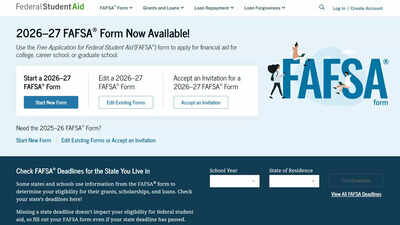47% of American adults lack confidence in finding a good job: Millions fear falling behind despite working

A new AP–NORC poll (October 2025) finds that nearly half of Americans are doubtful about their ability to find a good job, reflecting rising financial stress and anxiety about the economy. The survey highlights a widening gap between economic indicators, such as low unemployment and stock market gains, and public confidence in personal and national financial security during the first months of President Donald Trump’s second term.
Job market confidence falls
The poll reveals that 47 percent of U.S. adults say they are not very or not at all confident in their ability to land a good job if they needed one. This represents a significant increase from 37 percent in October 2023. Only 21 percent of respondents feel extremely or very confident about job prospects, down from 36 percent four years ago. Analysts say this decline may reflect concerns about stagnant wages, automation, and ongoing economic uncertainty.
Public perception of the economy remains low
Despite historically low unemployment and gains in the stock market, public sentiment about the national economy is overwhelmingly negative. 68 percent of Americans describe the economy as poor, while just 32 percent believe it is performing well. Many Americans point to rising costs of living and policy uncertainty as factors behind their pessimism, suggesting that headline economic indicators do not fully capture household experiences.
Employees feel pressured by rising costs
Many Americans report that the pressures of daily life are affecting their work and financial security. Rising grocery prices are cited by 54 percent of respondents as a major source of stress, while 36 percent point to electricity and utility bills, partly driven by increased energy demand from AI data centers. Housing and healthcare costs worry around 40 percent, and roughly one-third are stressed by gasoline prices.Among employees, these pressures translate into workplace anxiety. 28 percent feel they are falling behind financially despite working, and only 12 percent feel they are getting ahead. Concerns about retirement savings affect 52 percent, while 63 percent say buying a home today would be difficult. Employees also report increased pressure to work longer hours or take on multiple jobs to meet rising expenses.
Slower job growth adds to concerns
The decline in optimism coincides with slower job creation. Since new tariffs were implemented in April 2025, monthly job gains have averaged below 27,000. The Labor Department reports that job openings remain around 7.2 million, while unemployment stands at 4.3 percent. Consumer confidence, tracked by the Conference Board, fell to 94.2 in September, the lowest reading since April. These trends reinforce Americans’ doubts about their economic future, even as broader data show a relatively stable labor market.
Disconnect between economic indicators and public confidence
The AP–NORC poll underscores a growing disconnect between official economic measures and public sentiment. While macroeconomic indicators suggest relative stability, many Americans feel financially insecure and uncertain about their futures. Concerns about inflation, tariffs, stagnant wages, and the rising cost of essentials are contributing to widespread anxiety, signaling significant challenges for policymakers seeking to restore public confidence.





